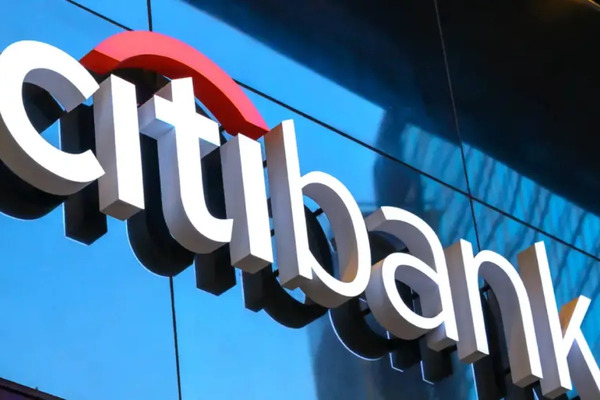Is Citigroup Stock a Buy Now?

Citigroup (NYSE: C) is a large and popular bank which most investors will know because of its name recognition. But name recognition alone is no reason to buy a stock. If you are wondering whether or not Citigroup is a buy right now, here's a quick look at some key factors you'll want to consider before making your final decision.
What does Citigroup do?
Citigroup is a large, diversified bank. Its operations span from traditional consumer banking and business banking to wealth management and other markets-related services. There is a lot going on within Citigroup, but it really isn't all that different from any other large bank.
Where to invest $1,000 right now? Our analyst team just revealed what they believe are the 10 best stocks to buy right now. Learn More »

Image source: Getty Images.
That said, the stock has fallen around 20% from its 52-week highs. That's much worse than the decline of the S&P 500 index (SNPINDEX: ^GSPC). While the S&P 500 index is in correction territory (a decline of more than 10%), Citigroup is basically suffering through its own personal bear market (a decline of 20% or more). This disproportionate drop may have bargain-seekers interested in Citigroup.
That's not unreasonable at all, but investors should probably take a bigger-picture view of the situation. Right now, Wall Street is worried about the potential for a recession thanks to geopolitical and tariff-related issues. Although Citigroup is a very different company today than it was back during the Great Recession, that was the last lengthy difficult economic period the bank lived through. It didn't distinguish itself.
The problem with Citigroup and an alternative
Prior to the Great Recession Citigroup had followed the industry trend of jumping into the mortgage space. When the housing market collapsed Citigroup was forced to take a government bailout, and it cut its dividend to a token penny per share per quarter. The company's stock plunged, as you would expect. And, to this day, it still hasn't fully recovered. Nor has the dividend.
It seems unlikely that Citigroup will go through that same type of period this time around. However, if you are a dividend investor trying to live off of the income your portfolio generates, well, Citigroup should probably worry you. And while its dividend yield is generous at 3.3%, you can do better with a more reliable dividend payer.
The bank in question is Toronto-Dominion Bank (NYSE: TD), which hails from Canada and has a 4.8% yield. Canadian banking regulations are very tight, and that has left Canadian banks with a conservative ethos. The heavy regulation has also given large banks like TD Bank, as it is more commonly known, entrenched market positions in Canada. In other words, TD Bank has a very solid foundation. That's a good thing, because the bank has run afoul of U.S. regulators.
To sum it up quickly, TD Bank's U.S. business was used to launder money. It has been hit with a fine, is spending to upgrade its internal controls, and is under an asset cap in the U.S. market. The last one is the one that has investors worried, since the company had pegged the United States as its growth engine. This is a problem, but the bank remains financially strong. In fact, it just increased its dividend 3%, a hike that is a sign of its still-solid core.
But what is really notable is that TD Bank didn't have to cut its dividend during the Great Recession, like Citigroup did. While it is true that TD Bank is a turnaround stock right now, it seems like it is a very low-risk turnaround. And investors are getting paid very well to wait for the company to regain the trust of U.S. regulators. Once that happens, which could take a few years, TD Bank will be able to ramp up its growth again.
If you are considering Citigroup, consider TD Bank
Some investors might look at TD Bank's U.S. misstep and think the stock isn't worth the risk. Even though the Great Recession was a long time ago, it is hard to suggest that Citigroup's terrible showing during that crisis sets it above TD Bank, especially since Citigroup's stock and dividend are still below the pre-dividend-cut levels. Given TD Bank's lofty yield, still-strong core business, and history of weathering difficult periods well, investors looking at Citigroup today might be better off looking at TD Bank instead.
Should you invest $1,000 in Citigroup right now?
Before you buy stock in Citigroup, consider this:
The Motley Fool Stock Advisor analyst team just identified what they believe are the 10 best stocks for investors to buy now… and Citigroup wasn’t one of them. The 10 stocks that made the cut could produce monster returns in the coming years.
Consider when Netflix made this list on December 17, 2004... if you invested $1,000 at the time of our recommendation, you’d have $594,046!* Or when Nvidia made this list on April 15, 2005... if you invested $1,000 at the time of our recommendation, you’d have $680,390!*
Now, it’s worth noting Stock Advisor’s total average return is 872% — a market-crushing outperformance compared to 160% for the S&P 500. Don’t miss out on the latest top 10 list, available when you join Stock Advisor.
*Stock Advisor returns as of April 21, 2025
Citigroup is an advertising partner of Motley Fool Money. Reuben Gregg Brewer has positions in Toronto-Dominion Bank. The Motley Fool has no position in any of the stocks mentioned. The Motley Fool has a disclosure policy.







